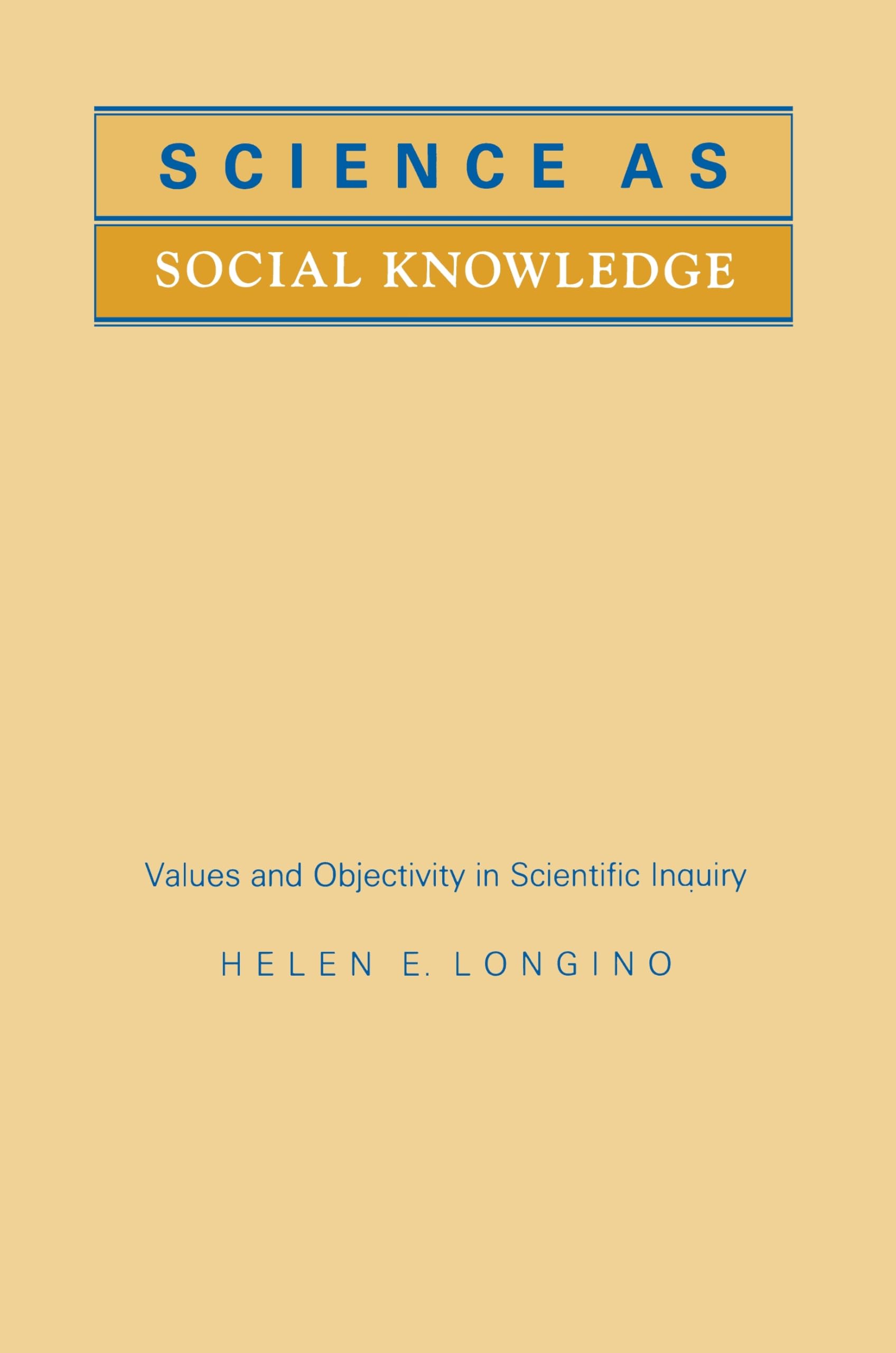

Full description not available
N**Z
Great
Wonderful timing, quick and professional. I highly recommend anyone this seller. No complaints. Very quick and diligent. I ordered these for my classes and it all worked out for the best. Thank YOu
H**H
Four Stars
Beautiful copy. Several pencil underpinnings though.
D**S
A classic in the field of science and values
Among philosophers of science -- and not just feminist philosophers of science -- this book is considered one of the classic philosophical studies of the interaction between science, on the one hand, and ethical and political values, on the other. While perhaps a bit daunting for non-academics -- it's written by a professional philosopher for other professional philosophers -- it's extremely worthwhile and highly recommended for people interested in ethical controversies over science, science and public policy, or postmodernism and objectivity. If you're intimidated by highly abstract academic writing, you might ease in with Heather Douglas' Science, Policy, and the Value-Free Ideal or Philip Kitcher's Science in a Democratic Society (Prometheus Prize) . (Full disclosure: Douglas is a friend of mine.) An excellent and very concrete (not theoretical; written by historians) recent book is Naomi Oreskes and Erik Conway's Merchants of Doubt: How a Handful of Scientists Obscured the Truth on Issues from Tobacco Smoke to Global Warming .Longino's book was written just before the height of a major intellectual controversy called the Science Wars. On one side were sociologists, historians, literary theorists, feminists, critical race theorists, postmodernists, and others who challenged the ideas of truth and objectivity and the privileged status of science. On the other side were scientists and philosophers, especially physicists such as Alan Sokal, who tried to defend truth, objectivity, and science. (Sokal committed a famous hoax on the postmodernist journal /Social Text/ in 1996; you can read about it on Wikipedia.)In my opinion -- and I'm a scholar who works on these issues -- much of what was written during the Science Wars was quite poorly-argued polemics, and were a waste of time when they were written. By contrast, /Science as Social Knowledge/ is extremely well argued, and attempts to synthesize the two basic positions in the controversy. On the one hand, Longino agrees with the sociologists, feminists, etc., that the old idea of objectivity as value-free science cannot stand. Except for the most rarefied of fields, science depends on assumptions that reflect ethical and political values. It is simply impossible for science to be free of values, and an impossible ideal is worse than useless. On the other hand, Longino believes that this does not mean we need to throw out ideas of truth or a version of objectivity, and in this way she agrees with the scientists and philosophers. Objectivity, on her view, is produced by critically examining the reasoning and assumptions made by scientists, from the perspective of all different sets of ethical and political values. For example, up through the 1970s, primatology was loaded with sexist assumptions and methods and (not accidentally) was done primarily by men. After a generation of feminist-identified women entered the field, they were quite critical of this sexism, and primatology became more objective in response. By subjecting the field to critical scrutiny, feminist values made primatology more, not less, objective.I do not entirely agree with Longino's views, but that does not change the fact that her book is a landmark of the field and is still well worth reading today.
Trustpilot
2 months ago
1 month ago